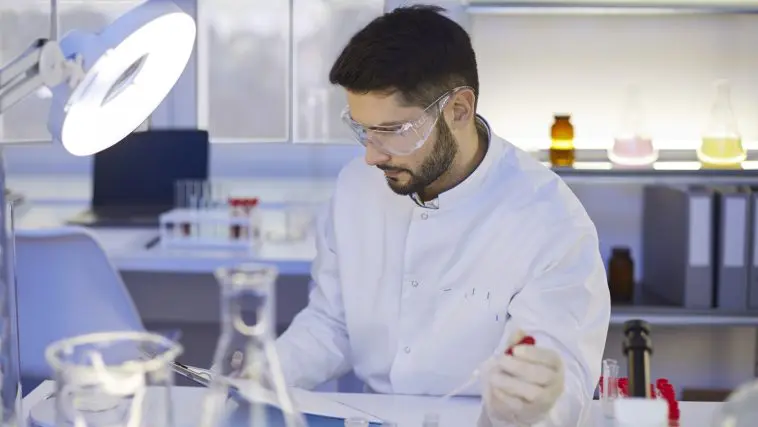[Originally published as the third part of TCQ Week 3: Science and the Supernatural]
The Flood
When I first started learning about creation science, I was astounded to find how much time creationists spent talking about the flood. Ever wonder why Answers in Genesis chose to build the Ark in Kentucky?
You’re about to find out why.
Turns out, the flood changes everything. As significant as it is in the biblical storyline in terms of God’s story of judgment and salvation, it’s also significant in what it means for earth history.
The flood is the great paradigm-shifting event. So many of the beliefs held by modern scientists today hinge on whether or not they think the flood happened. This means that investigating the flood is paramount.
The core naturalistic assumption of modern scientists is called Uniformitarianism. You might have heard this referred to as “the present is the key to the past.” This is a philosophical presupposition and is not a conclusion based on evidence. If the biblical worldview — the flood worldview — is true, the opposite is the case:
The past is the key to the present.
The flood tells us so much. From it, we can learn things like:
- Which rocks were created by the flood vs before/after
- How the ice age happened
- How and why volcanoes and mountain ranges form
- What happened to the dinosaurs
- How does fossilization occur
- Why meteor impacts might have contributed to it
- Why earthquakes occur
- What animals did Noah take on the ark
- Why conventional radiometric dates are wrong
- And way, way more!
From an apologetics perspective, the flood is hugely important, because it confirms so much about how modern science can map onto a biblical worldview. This, perhaps more than any other event in biblical history, is able to be studied by science, and it’s a beautiful thing.
The Cell
Yet another fine example of design detectable in science is the smallest living organism: a single cell. The cell is far more advanced than any modern factory we have.
DNA is what author Stephen Meyer has called the “Signature in the Cell.” It functions as a language — much like a computer code. It uses the letters A, C, T, and G, and the specific arrangements of these four letters control all of life as we know it.
Importantly, cells contain both DNA and RNA. DNA stores genetic information, while RNA plays several roles, including acting as a messenger that tells the cellular machinery what to do based on the DNA instructions. For life to have evolved independently, both DNA and RNA must have been present and functioning together from the start.
To date, there is no clear path for how either DNA or RNA could have arisen on their own, let alone both simultaneously.
The importance of this discovery from a supernatural perspective cannot be overstated. The most fundamental unit of biological life — the cell — is so beyond our capacity to understand that we’re virtually clueless as to how it could have arisen, and we’re still learning daily about how it works.
It is the premier example of design in nature, and to me is just as wondrous to behold as the most regal star. God is the grand engineer, and to deny the reality of his work in creation is to defy all logic and abandon all credibility.
And for our purposes here, it is fitting that all scientific discovery essentially boils down to tiny unit of irreducible complexity. Too complex to have arisen on its own, it practically screams supernatural creation.
How Can a Christian Faithfully Practice Science?
To close out this lesson, I would like us to consider what it would look like for a committed Christian to practice science faithfully. I don’t think we should tell Christians who desire to be scientists what to believe, I think we should teach them how to think.
As I mentioned before, most of you will not be upending your careers to become scientists. But neither have I. And yet, I found this information to be so useful and exciting in my own Christian walk that I passionately share this with you now.
My hope is to transfer some of that enthusiasm to you. And who knows, maybe someone you know will become actively engaged in the sciences, and this information will be even more useful to you then.
Ready for adventure
Here’s a hot take: I think the way most creationists approach science is wrong. Most approach it as a way to “prove the Bible right.” I think that is the wrong approach, in part because I don’t need science to prove the Bible is true. More than that, while there’s nothing morally wrong with such a goal, it leads to closed-mindedness.
Science is all about discovery and going where the evidence leads. It’s a great adventure. It’s not about making sure we get the “right” answer to satisfy our curiosities, it’s about getting the answer God built into creation for us to find!
Honest with the evidence
This should go without saying, but sadly, it doesn’t. In the past, some creationists have been known to be dishonest — usually in subtle ways, sometimes in not so subtle ways.
The subtle ways include overstating the case for creation, understating the case for evolution, not dealing honestly with another scientists work, looking for a specific answer to confirm a bias instead of seeking the truth, etc.
Some of the more overt cases have included manufacturing evidence, coming to clearly-wrong conclusions for the sake of maintaining a narrative, continuing to use discredited arguments, and purposefully excluding the evidence/research of information that would contradict creationist beliefs.
It should go without saying, but none of these things are befitting of a Christian. If we’re going to do science, let’s be honest with the evidence — for our own sake, the sake of our brothers and sisters, and for the sake of those we’re trying to win to Christ.
Averse to wagon-hitching
Some scientists — usually those who believe the Bible but take the “two books” view we discussed in the last lesson — hitch their wagons to particular views of earth history.
The BioLogos organization are the leading promoters of evolution as it relates to Christianity. They claim it is their belief in Jesus that requires them to be “honest” with the data and accept the mainstream evidence for evolution as true.
But they have committed a grave mistake. They’ve hitched their wagon to a scientific model (one that is, in many ways, on the rocks, mind you). One of these days, their confidence in that model will be rocked to the core, and their entire organization will be almost pointless.
Worse still are those who’ve hitched their wagon to the Big Bang. It’s important to realize that the Big Bang is not “creation out of nothing.” It is a specific model of the origin of the universe that has some serious problems.
Those who’ve changed their interpretation of the biblical account to match the evidence for the Big Bang (I personally know many of them) have committed a mistake in hitching the Bible to a scientific model.
What’s the right approach?
An example: In Flood Geology, the consensus theory is called Catastrophic Plate Tectonics, or CPT. Notice, I made zero mention of that earlier when discussing the flood. Why? Because all I commit to is what the Bible commits to — that a global flood happened.
There are other theories of the flood, such as the Hydroplate Theory, but those have largely fallen out of favor. Still, CPT could be overturned tomorrow, and it would not shake my faith one bit. Why? My faith is in the fact that a global flood occurred, not the consensus scientific model.
Willing to question the mainstream
Sometimes being a scientist who believes the Bible will involve academic harassment, persecution, and more. I know scientists whose reputations have been dragged through the mud, had their work taken away, and worse. (There’s an entire book about this called Slaughter of the Dissidents.)
I know scientists who wrote creationist publications under a pseudonym while in their doctoral programs, and am personal friends with one who feared he wouldn’t graduate because of his creationist beliefs (he did, and now teaches at Liberty, praise God).
It’s not always comfortable to be right. But if you’re going to be a Christian, sometimes that sacrifice must be made.
Maintain Christian charity and character
Finally, in all we do, we should seek to glorify God and maintain Christian charity and character. It’s easy to get lost in debate and rivalry.
The creation science community is so small, and yet there is a lot of controversy and division over seemingly minute things. It’s a community that needs each other. Everyone plays a part.
And I’m on the side of those who wish to create more unity than division and work together for the cause of science and the glory of God.







